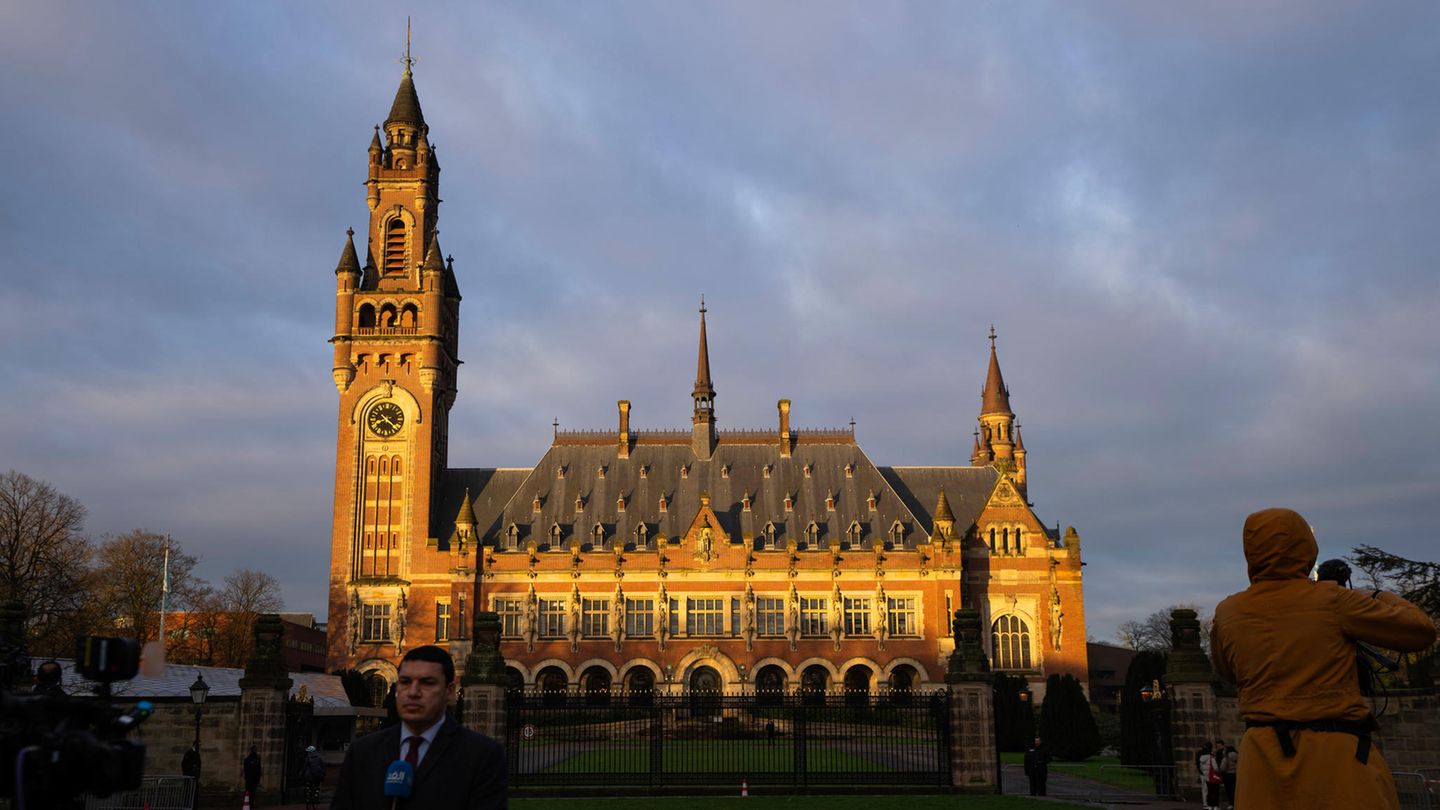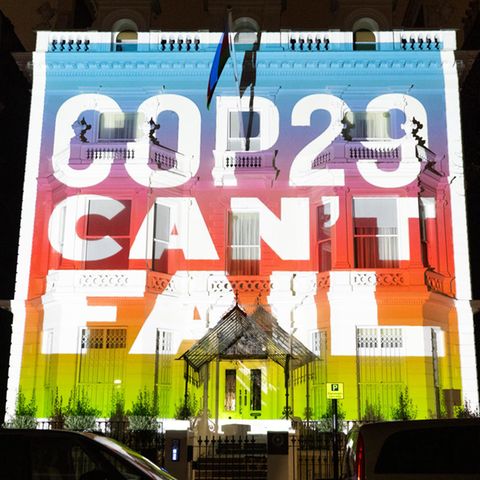Fight against climate change
The highest UN court decides the future of the planet
Copy the current link
Legal history is being written in the Hague: lawyers are supposed to decide whether all countries should be obliged to fight climate change. What the verdict would mean.
After the disappointing climate summit in Azerbaijan, judges are now supposed to decide on the fight against climate change. At the negotiations in Baku, delegates from almost 200 countries fought over who would be responsible for climate change in the future and who should finance the damage. The Global North had called for other countries such as China and the Gulf States to be held accountable. According to a UN clause, these states are still considered developing countries that benefit from climate aid despite the wealth they present in cities like Riyadh or Beijing. Many of them are now among the main destroyers of the planet and therefore have to pay themselves.
Now the question of guilt and responsibility will be handed over to the judges of the highest UN court in The Hague (UGH). They should determine in the coming weeks whether they should become states. For some countries it is already a matter of life and death: especially in poor island states or on the coasts of East Asia, numerous livelihoods are threatened by rising sea levels and hurricanes.
The case is therefore historic. Depending on how the report turns out, this could have consequences for previous and future climate judgments. An overview of the most important questions:
What exactly is it about?
The UN General Assembly had already asked the International Court of Justice in 2023 for an assessment on the question of how much states should be held responsible in the fight against climate change. The judges in The Hague are expected to produce a legal opinion that answers two questions:
- What legal obligations do states have to protect the environment and climate against harmful greenhouse gas emissions?
- What consequences should their actions or inaction have? Are states liable for damages?
Who is taking part in the negotiations?
98 states and 12 organizations are expected to present their arguments to the 15 judges in the Peace Palace over the next ten days. Germany will take a position on Monday. Authors of the International Climate Report (IPCC) also take part in the negotiations.
The United States and China, the world’s largest emitters, will also make statements, although neither fully recognizes the court’s authority.
Why is the report historical?
Although the legal opinion is not binding, it can influence climate processes worldwide and force states to take more climate protection.
The project was initiated by the small island group of Vanuatu. It is one of the countries and regions that is l. Ilan Kiloe, legal counsel for a regional subgroup that includes Fiji, Papua New Guinea, the Solomon Islands and Vanuatu, told the Guardian: “The harsh reality is that many of our people will not survive.”
That’s why they, together with other countries severely affected by climate change, want to force rich countries to pay for the damage. The archipelago will be the first of 98 countries to present their statement to the judges on Monday.
Source: Stern
I have been working in the news industry for over 6 years, first as a reporter and now as an editor. I have covered politics extensively, and my work has appeared in major newspapers and online news outlets around the world. In addition to my writing, I also contribute regularly to 24 Hours World.





